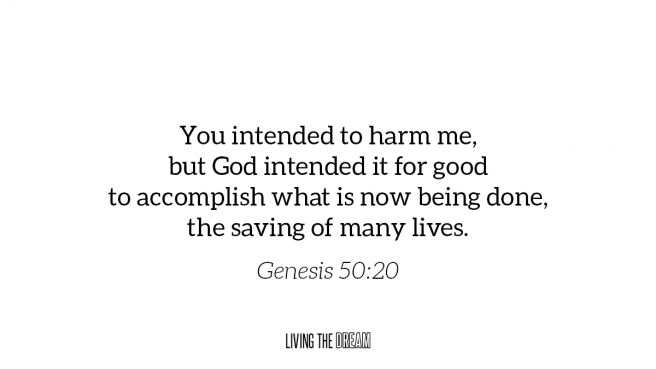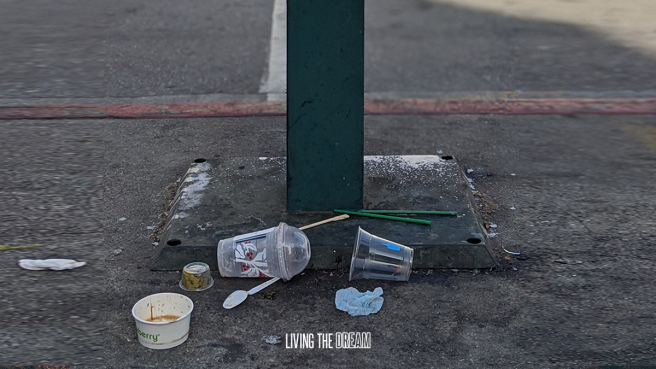Opening Prayer: “Glory to the Father, and to the Son, and to the Holy Spirit, as it was in the beginning, is now, and will be forever. Amen.”
Daily Scripture Reading:
- Genesis 45:5-8
- Genesis 46:1-4
- Philippians 2:3-4
- I John 4:19-20
In the end, Jospeh’s dreams were fulfilled. We read of at least 3 different instances in which his brothers literally bowed down before him (Gen. 42:6, 43:26, 43:28). I wonder what those moments felt like. I wonder if he had that lightening bolt thought, “this is it. It’s happening. This is my dream coming true.” I imagine the road had been so long and his personal transformation so enormous, that moment was very different than what his 17-year-old self thought it would be.
In the beginning, I believe Joseph was like most of us, assuming his dreams were about himself. By the time he was standing above his bowing brothers, second in command of all of Egypt, he was clear that God had sent him ahead of them to save their lives. And not only their lives, but the future nation of Israel, fulfilling the promise God had given to Abraham generations before. And not only the nation of Israel, but the family line of Jesus, protecting the Messiah’s lineage hundreds of years ahead of His arrival. Though Joseph had one of the most adventurous, exciting stories in the Bible, he knew and we see that it was just a small chapter in God’s greater story.
Is this how you look at your life? Are you still assuming that the plans and purposes God has for you begin and end with the fulfillment of your own dreams? The tidal wave of our self-obsessed culture is hard to fight. We see everything through the lens of “me.” But what if that raise wasn’t just to fund your dreams? What if that new job wasn’t just about your own upward mobility? What if that new home is to open to the lonely? What if that experience- good or bad- wasn’t intended to terminate on your own personal growth? What if your broken heart was to heal someone else’s? What if your blessings are to bless others? What if it’s all a part of a bigger dream?
In I Corinthians 3:9 we are called God’s co-workers, or co-laborers. We are the conduit of His power, grace, healing and love to this broken world. And we bring all of this with all we are. We have to embrace His bigger dream for the redemption of His world. We get to tell our small chapter of His great story with our lives.
Our boy Joseph was a foreshadowing of Jesus. He left a comfortable home and a loving father to live as a foreigner among hostile people. He was betrayed, falsely accused, and eventually became the savior of his family. In Joseph’s story we see Jesus’ heartbeat for His people. And for those who call Him Lord, we have that same heartbeat inside of each of us. Will you live your dream in context of His?
Today’s Big Questions: Do you see your dreams in context of God’s bigger dream for the world, or do they begin and end with you? Try to identify how the dreams God has given you can fit into the bigger dream of loving on others and redeeming the lost.
Prayer Response: Today, ask the Holy Spirit to speak clearly to you about how your dreams, plans, and life are a part of God’s bigger story. Ask for specifics. Does He want you to financially bless someone today? Does He want you to tell your story to someone? Is He asking you to invite someone into your home? Confess if you have believed that your dreams are for yourself only.
Optional Action Step: On this, the last day of this devotional, take some time to journal your final thoughts. Make a bullet point list of lessons you have learned from the life of Joseph or areas of growth you have experienced. God does not desire more information in our heads if it does not translate to transformation of our hearts.
Closing Prayer: “Now to Him who is able to do immeasurable more than all we ask or imagine, according to His power that is at work within us, to Him be glory in the church and in Christ Jesus throughout all generations, for ever and ever! Amen.”


